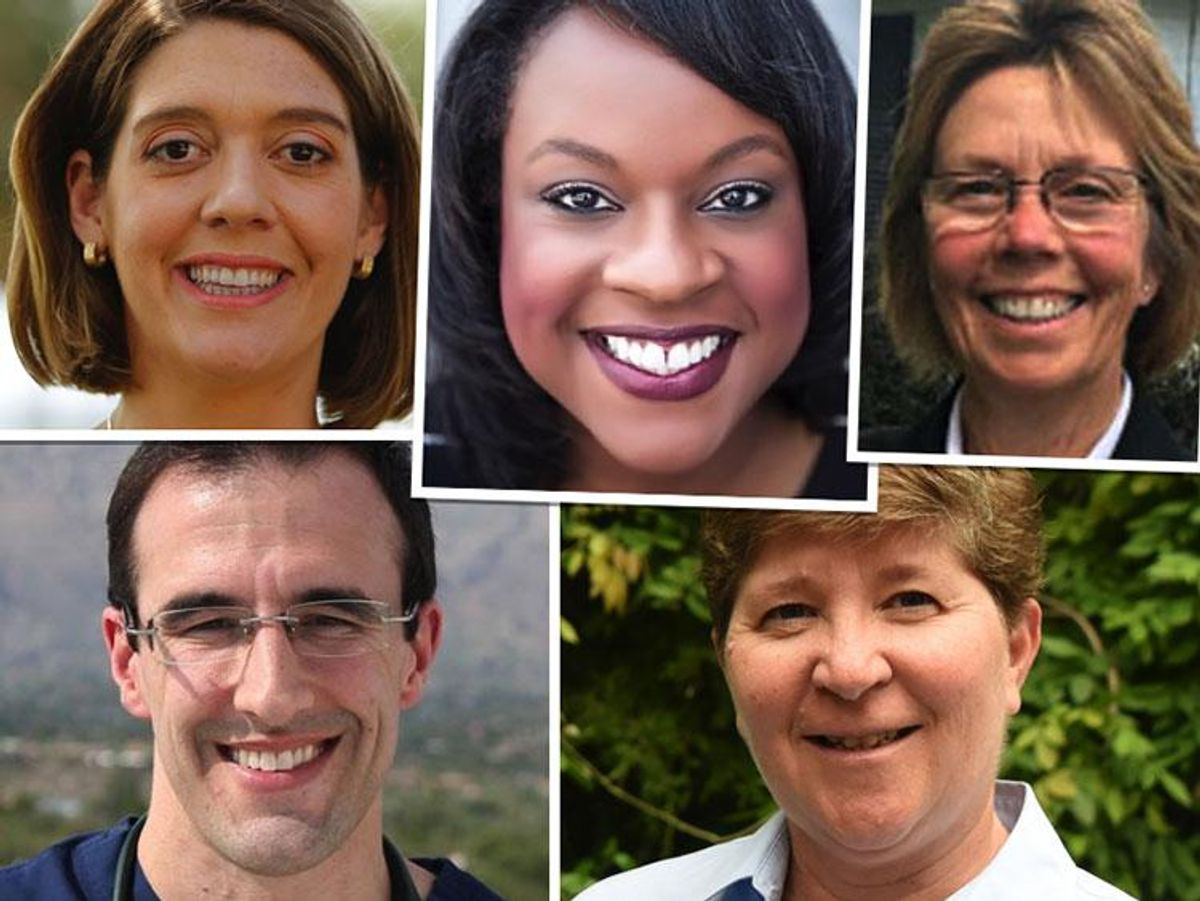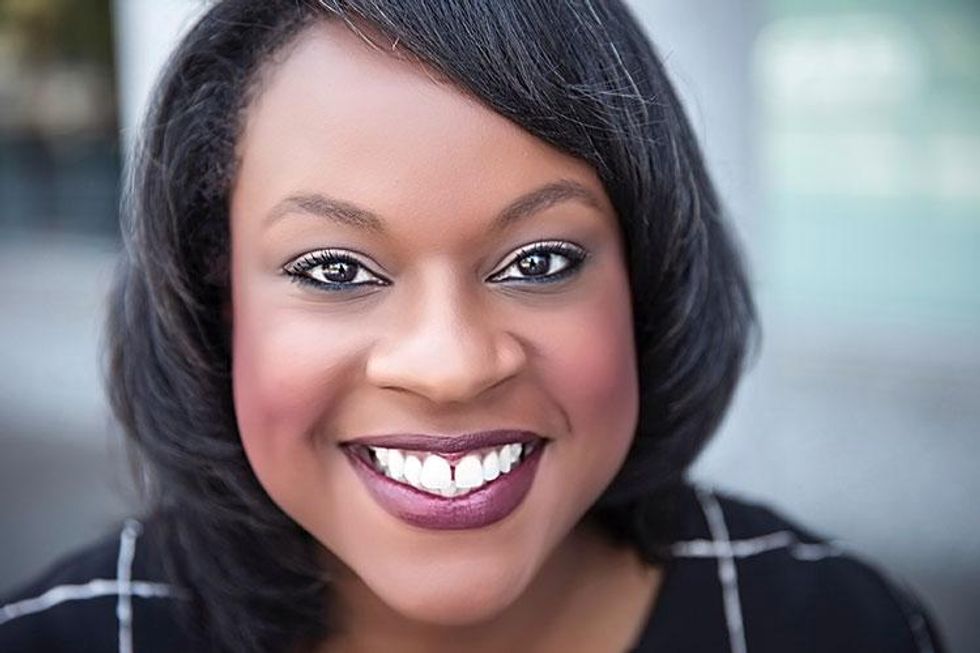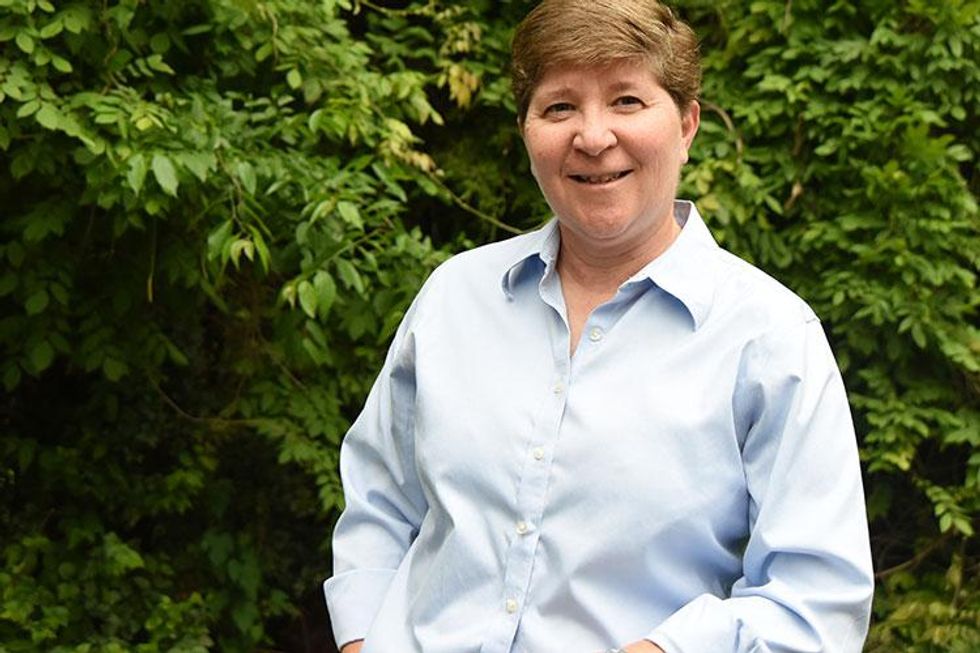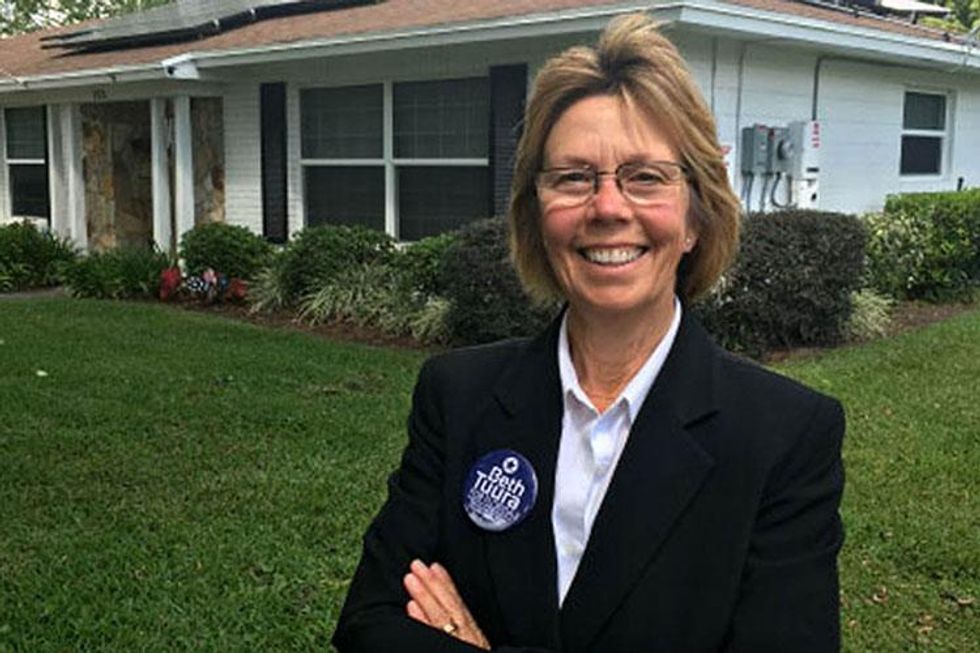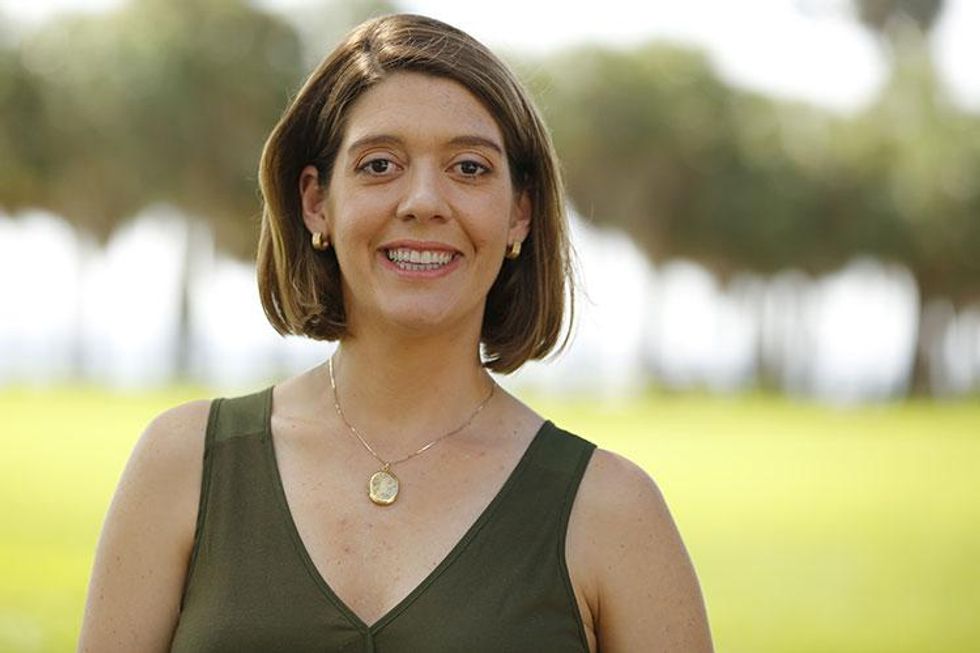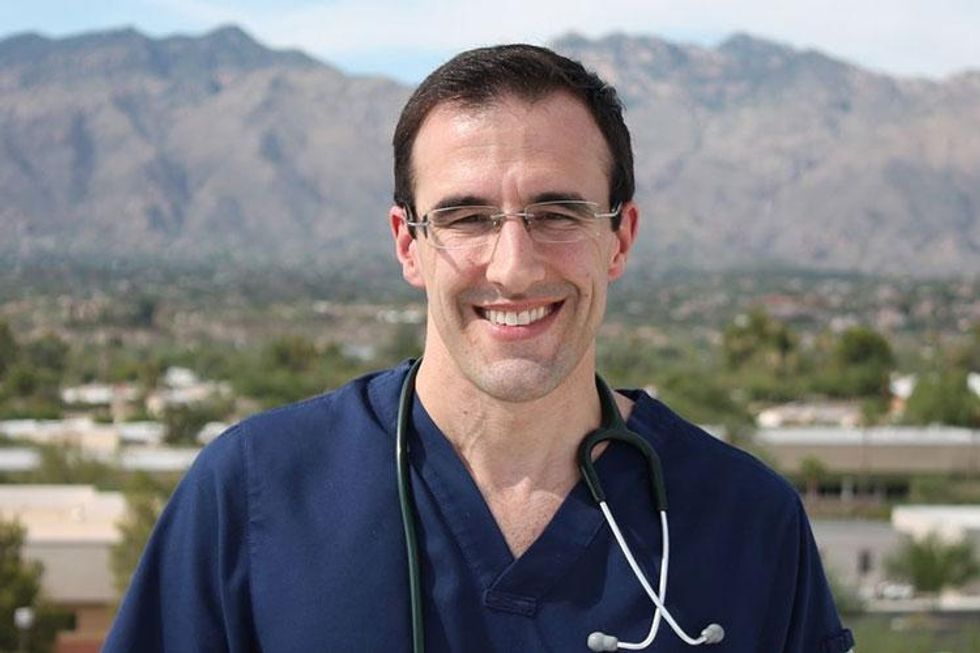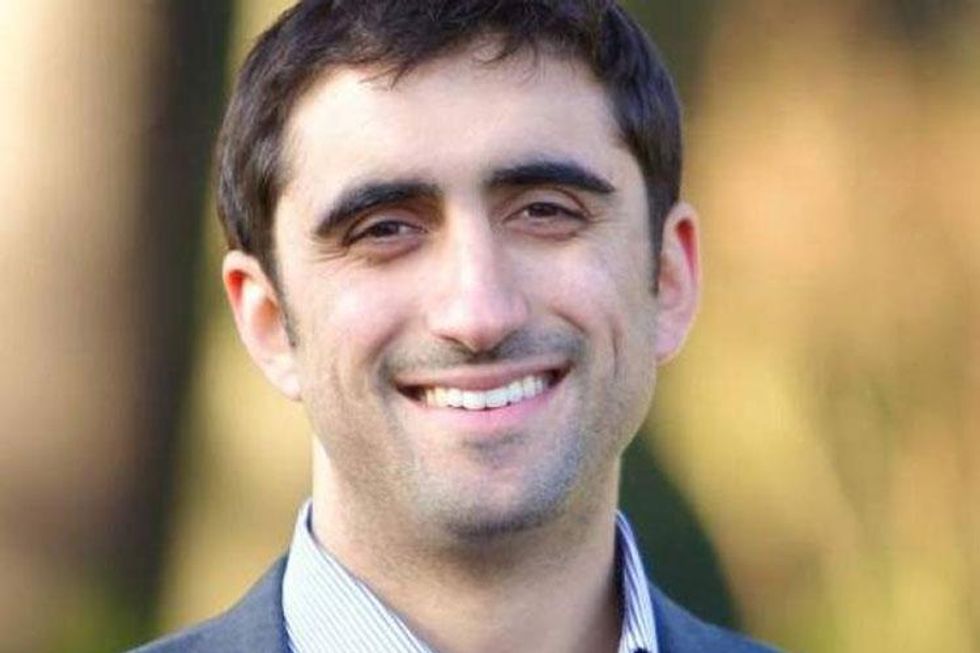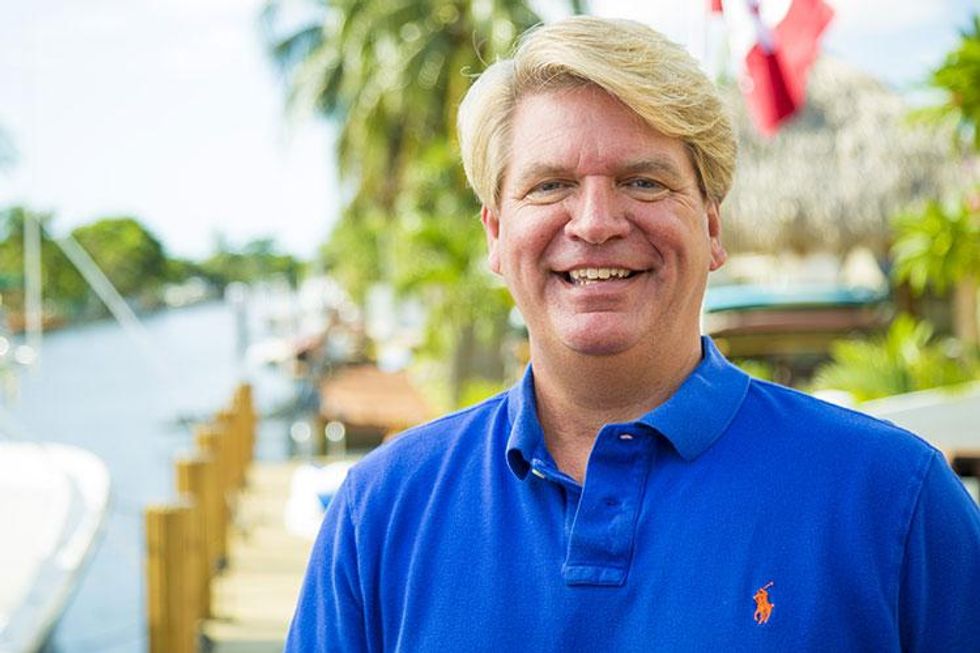
Leslie Herod -- Candidate for Colorado House of Representatives -- District 8
"Leslie, why do you hang out with so many gay men? Are you one of them?"
"No, mom, I am not a man."
And that is how I came out. My mom stood there and stared at me, blinking for a bit. It seemed like hours.
In truth, I had been dating Erica for a while. I remembering being instantly attracted to her cute freckles, and her love for poetry and Erykah Badu. We were young college activists and we were in love.
I didn't want to hide our relationship from my mom or my family any longer. So, out it came.
My mom shifted from quiet stare to hysterics in the blink of an eye. She expressed outrage, asked what had happened to me, and even said, "but you were a cheerleader."
None of this made sense to her. I didn't fit into her stereotype of what "gay" was.
As she worked through her anger and confusion, my mom finally settled on worry -- the root of what I suspect is at many strong reactions from parents. She worried that I would not be safe. She worried that I would not be able to excel in my career. She worried that people would judge me and then hate me. I knew she was right.
The next few months were tough for my mom and me. My coming-out reshaped our relationship in good and bad ways. We are not the same, but we are honest and that's better. Through it all, I vowed to not let her worst fears become reality. Coming out would not alone define me, nor would it limit me. I would be the daughter she wanted me to be. I would work harder, not just for me but for all of us. I would work to build bridges between churches and the LGBT community. I would fight for marriage equality and nondiscrimination. And finally, I would run to become the first African-American LGBT person to serve in the Colorado State Legislature.

Jane Campbell -- Candidate for North Carolina House of Representatives -- District 98
Like most folks, I knew from an early age that I was gay. But I also knew that I wanted a career in the military like my dad. I remained silent about my true self until 1990, when I decided to tell my parents. I was a brand-new Navy officer, and their concern was immediate. My parents showed unconditional love but were afraid for me given my military career.
As a result, I quietly went back into the closet and continued my military career. In 1993 "don't ask, don't tell" became the law of the land. While the closet door remained closed, the proactive witch hunts subsided.
In 2010 I was in Afghanistan when President Obama announced that he would seek to repeal DADT. Later that year, I was a student at the National War College when the judicial and legislative actions took place to repeal DADT. During my follow-on tour at the Pentagon, I had a front-row seat for the repeal process. I even had the distinct honor of moderating the first Pentagon Pride Month Ceremony.
I was lucky enough to reconnect with one of my Davidson College classmates at our 25th reunion, and were married a year and a half later. When we retired to North Carolina in late 2014, we figured the Defense of Marriage Act was our biggest hurdle. Once that was cleared, we thought we were would be able to focus our efforts on other areas of positive change. House Bill 2 changed everything.
When we learned that our local incumbent had crafted, sponsored, and voted for HB 2, I decided to get into the 98th House District race to provide him with a challenger. The result is that I am the only openly gay candidate for the North Carolina House and will be the only openly gay member when elected.

Beth Tuura -- Candidate for Florida House of Representatives -- District 47
My coming-out story isn't very interesting because it was pretty obvious from the day I was born that I was different. I remember I made my mom take me to the barber to get my hair cut. I was 5 years old. My hair looked awful, but I was happy. I've got to hand it to my Irish Catholic mother who was willing to stretch her boundaries in order to let me explore my genuine self. And then there is that picture of me from Christmas in 1962. I'm wearing my cowboy shirt, cowboy boots and hat, and my holster with two six-shooters. It was the holidays, so in order to keep it festive, I wore my dad's silver necktie.
I officially came out in 1982, when I was 26. I'd spent a life living in the margins and pretending I was straight. I hated my life because I never felt truly alive. I think that is such a tragedy of not being honest with people. You learn to hate yourself and believe there is no future. You also miss out sharing the milestones in your life with your family.
I can't remember why I decided to tell my mom, but I made plans to meet her for lunch, hoping to tell her after a couple of glasses of wine. We finished lunch and I jumped right in.
I said, "Mom, I have something to tell you."
She said, "I think I know what you're going to say."
"Mom, I'm gay."
She looked at me and said, "I know, honey. I've known for a long time. But I have to tell you something. I don't understand it and I'm not sure I like it, but you're my daughter and I love you. I want you to be happy."

Jennifer Webb -- Candidate for Florida House of Representatives -- District 69
My coming-out story is one of carving out an authentic space for myself to thrive, grow, and be happy. At 19, after a series of events, I promised myself that if anybody asked if I was a gay that I would be honest and tell them. My mom was the first person in my family to ask. When I told her I was a lesbian, she burst into tears, lamenting that I was going to hell, and subsequently prevented me from seeing my younger sisters.
Eventually, I moved to Massachusetts. I moved so that I could get a firm grounding of who I was as a woman, as a thinker, as a public servant -- as a person. In having the space to be myself and with the support of my partner at the time (who is now my wife, Cynthia), I began to stand more comfortably in my own skin. As a result, I insisted on being seen and accepted for who I was from my family and everyone else in my life. And I demanded that same acknowledgement and acceptance for Cynthia and our relationship.
Our experiences in life shape us in many ways. My road to public service is a culmination of countless experiences, but coming out was definitely an important marker in my journey. The pain that comes with you and your loved one being rejected stays with you. That pain, that marker, becomes a guiding light which helps you navigate from places of conflict to realms of possibilities and solutions. I am running for Florida State House in Pinellas County's District 69, which is a visible example of public service, but please know any time any of us makes the commitment to live authentically, we are serving humanity and making the world a better place for everyone.

Matt Heinz -- Candidate for U.S. House of Representatives -- Arizona Congressional District 2
My coming-out story is similar to a lot of others, and fortunately it is relatively uninteresting. I was incredibly nervous so before approaching my mother and father, I consulted with one of my sisters and another close family member -- they both encouraged me to open up to my parents. I can't say they were pleased at first, but they quickly came around to the idea. When my mother started to send my first boyfriend birthday cards, I knew that things were going to be just fine. I'm blessed to have a family that accepts me and strongly supports me.
It seems funny to say, but in some ways it was harder to come out as a Democrat than it was to come out as gay. I come from a very conservative Midwestern Republican household. I'm very lucky to have parents who accept me as gay even while our political differences make for lively discussions at family gatherings and at the dinner table.
Moving to Tucson, where I completed my medical training and began my professional career, was also a major inflection point in my life as an out gay man. Compared to the small city of my birth, Tucson is a large, cosmopolitan, and welcoming community where I felt comfortable introducing myself as gay to my colleagues and friends for the first time.
You can't be the person you're meant to be when you keep part of yourself shut away from the world. Coming out as gay was a necessary step in becoming the man I am today. I'm thankful for the family, friends, and city that continue to support me and also for the brave LGBT pioneers who forged the path decades ago to make my acceptance possible.

Brady Pinero Walkinshaw -- Candidate for U.S. House of Representatives -- Washington Congressional 7
I was so fortunate to grow up in a home with loving and accepting parents, but I also grew up in a small rural community in a conservative part of Washington State. I went through public schools, and when I reflect on my upbringing, I distinctly remember that I never met someone who identified as openly LGBTQ until I crossed the country and started as an undergraduate at Princeton. Growing up, the idea of being openly LGBTQ never even entered my frame of consciousness. It didn't seem like an option because I had no role models.
My wonderful freshman-year roommate from Saratoga Springs, N.Y., was the first openly gay person I ever met. So many friends helped me realize that it was possible to be openly gay. But even in school, I didn't fully come out. My friends knew, but that was about it. It wasn't until a couple years after college that I finally shared with my parents that I was gay. hen I look back, I wonder why I wasn't open earlier in my life. Even growing up in an accepting home, I'm left realizing the lasting impact that growing up in a community without role models has on young people.
My husband, Micah, and I talk about this often. We're part of a generation that came of age during the struggle for marriage equality. But we're also part of a generation that spent our childhood watching and listening -- consciously and subconsciously -- as our country responded to our community at a time of such struggle and grief with HIV/AIDS. I was 10 years old when Tony Kushner produced Angels in America, and I was 11 in 1995, when highly active antiretroviral therapies first reached patients at a meaningful scale. In many ways, I believe we're part of a bridging generation that needs to capture this history, retell it for the future, and be role models in this struggle for acceptance that replays itself in similar way across all parts of our LGBTQ community today.

Ken Keechl -- Candidates for Florida State Representative -- District 93
I grew up in a loving and modest home where I was the first person to graduate high school and the first to go to college. My parents instilled in me the importance of going to college, wanting to provide me opportunities that they never had. As I got older, I struggled with when to tell them my secret -- I was gay. I was in law school when the U.S. Supreme Court upheld the constitutionality of Georgia's sodomy law in Bowers v. Hardwick. Their ruling shocked me. One week later I was doing legal research and learned of Florida's statute outlawing same-sex couples from adopting. I realized I couldn't hide anymore.
I joined a small law firm and fell in love. My family, friends, and colleagues accepted my partner as no different than their own spouses. When my partner died of AIDS, his family was not there with me in the hospital room, but my parents and my law partners were. After his death, I was motivated to get more involved in my community and eventually became president of the Dolphin Democrats. During my presidency, I got into a political argument with a neighbor, who just happened to be a Broward County commissioner. When I decided to run against him to serve on the Broward County Commission, there had never an openly LGBT county commissioner in Florida history. Many told me I couldn't win. When the voters elected me, my parents were there to celebrate with me, and my future husband, Ted, held the Bible as I was sworn into office. My commitment to fighting for the rights of every Floridian, no matter their orientation or gender, continues to motivate my political involvement, and I am honored to be running for State Representative District 93.
These stories were provided by the Victory Fund, the national nonprofit that works to elect LGBT people to office.
